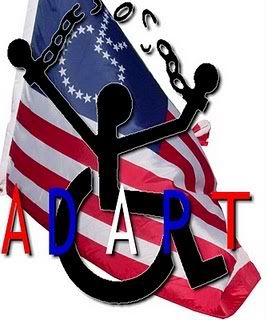
We parents of children with disabilities spend a great deal of time advocating for our children. And, that advocacy often involves some sort of inclusion for our children with their non-disabled peers. We will say that we long for the vision of all children, regardless of ability level, playing together, learning together, just generally being one big happy group. But what about within the world of disabilities – do we advocate for that same level of inclusion? I’m not so sure…
I’ve noticed over the 13 or so years that I have had children receiving special education services in my school district that even within the disability world we tend to segregate.
Children with milder disabilities, even some with invisible disabilities, do not socialize or learn with children that have severe disabilities. Parents of children with Down Syndrome, for example, usually win the battle to have their children educated in the general education classroom. The children move freely among their non-disabled peers. But my children with significant or severe disabilities are kept in separate classrooms, often in separate areas of the school, using separate lunch tables, and with limited or no access to their non-disabled peers. That seems to be ok with those parents of the Down Syndrome children. But it usually is not ok with the parents of the children with severe disabilities.
And then there are those times and events that include children with emotional or behavioral issues. Parents of children with disabilities that don’t have those issues can often be seen drawing their children closer, away from the ‘wilder’ children. Or, parents of children with Deafness will often only facilitate socialization only with other Deaf children, relying on the whole Deaf Community argument for their rationale.
More and more, I hear about ‘Autism’ classrooms. Are we sure that isolating children with Autism will make their adults lives easier and happier? Are we afraid to have children who are blind, or have ADHD, or who have orthopedic issues interact with the child with Autism? I know that I have heard many, many times that “I don’t want my child around that child with Autism. He will learn even more negative behaviors.”
Umm….So is inclusion only good when it suits us – when we think our children with disabilities will learn positive things from others? Are we being a tad hypocritical?

















1 comments:
You raise some excellent points. I think inclusion is extremely valuable but I've also argued that we can also learn from each other...which to an extent requires what could be considered segregation (i.e. opportunities to socialize with other people with disabilities). It is important though that that learning include diversity within our group-not just our select zone of comfort with disability level.
Post a Comment